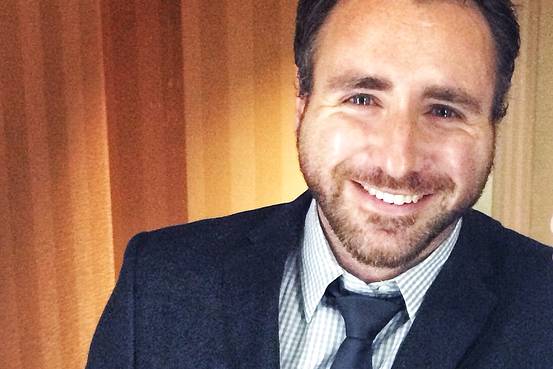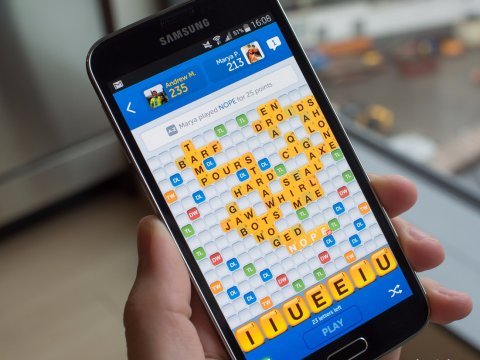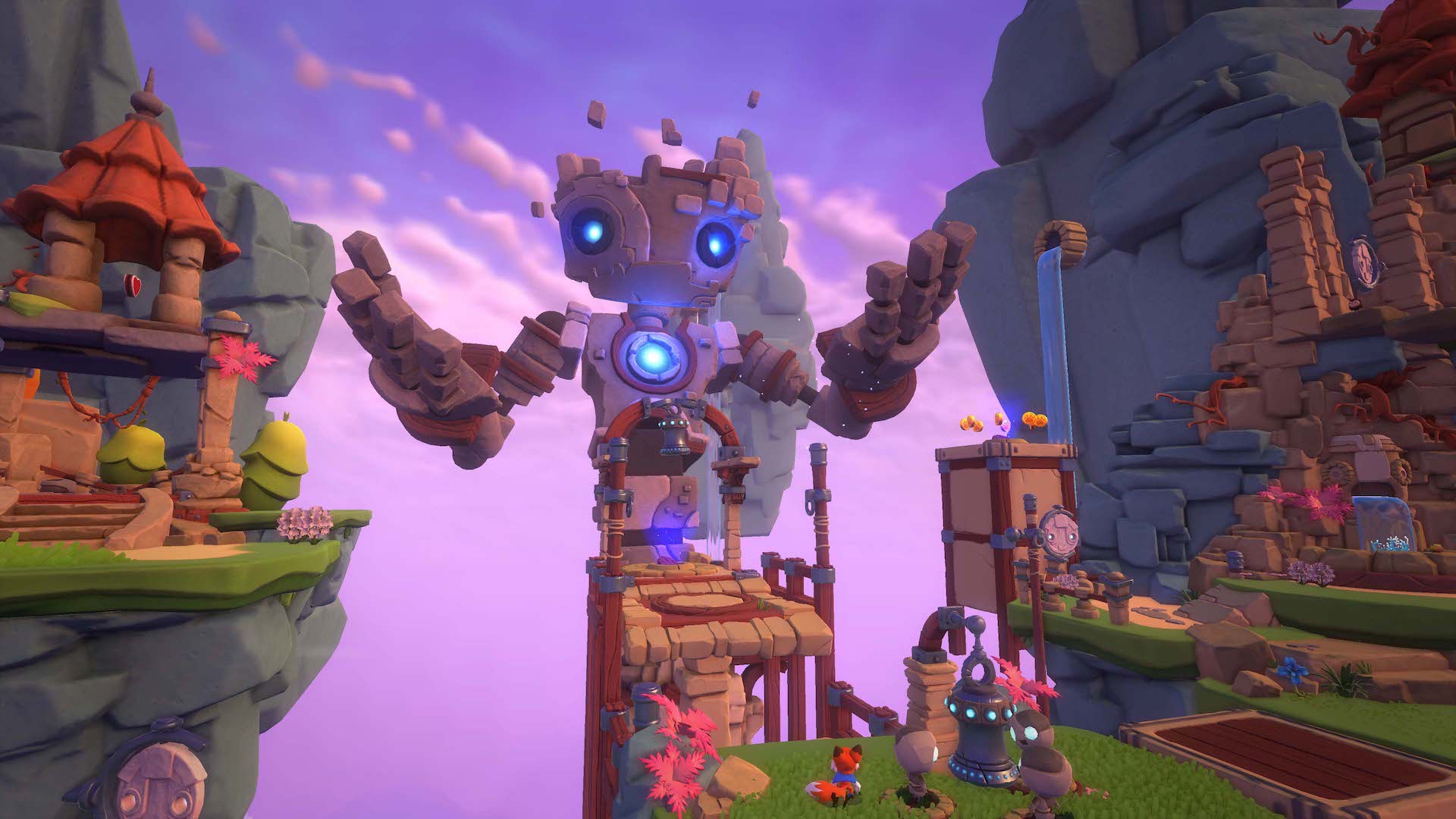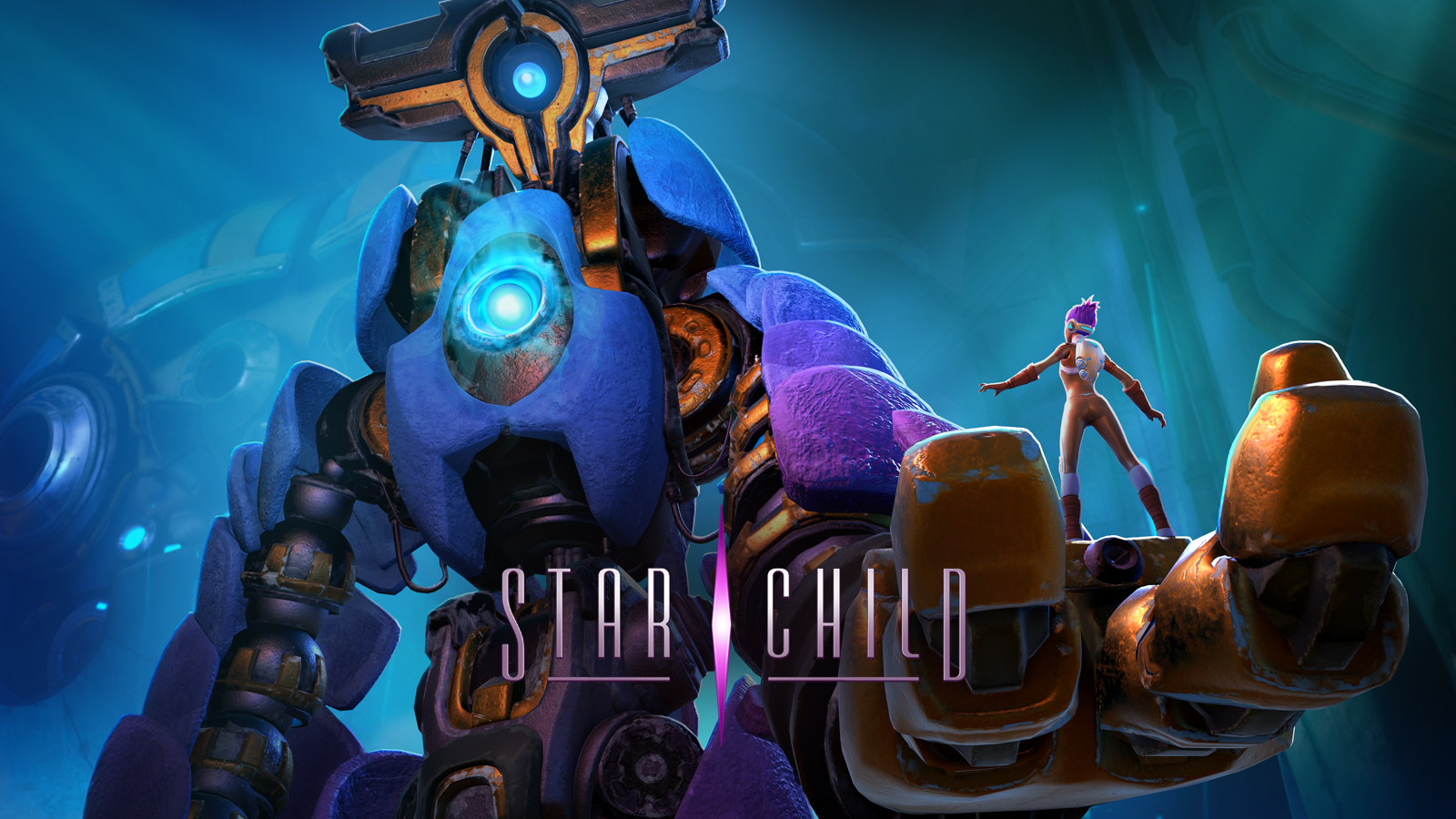
Pokemon recently earned a reputation for the biggest media franchise in the world, beating out powerhouses like Star Wars, Mickey Mouse, and Marvel properties in terms of revenue. Currently, the fact that the biggest property on the planet comes from gaming feels like an exception, but Pokemon may very well be a trendsetter when it comes to entertainment culture. People are gravitating towards games more and more, and Playful CEO Paul Bettner envisions a day when games are easily producing the most popular franchises around.
“When we look at the IP that’s most valuable today, we can see that it came from TV shows, comic books, novels, film. There’s no way that the most valuable IP 10 years from now doesn’t come from video games because it’s where everybody’s eyeballs are,” the co-creator of Words with Friends told me. “When you think about what the next Iron Man is going to be and really at that level of cultural penetration, that level of cultural awareness, it’s going to be video game characters 10 years from now.
“Beyond all doubt, it’s not going to come from these other places. It’s going to come from interactive entertainment and creating a company that’s setup sort of based on that foundation. It’s been this journey for us. It’s a different way of thinking about it. We tend to have to make these much more long-term decisions, rather than being just short-term focused on a single game or a single product. We’re thinking about it with everything we build, Lucky’s Tale, Star Child, our new stuff, ‘How is this going to be able to turn into that and be relevant 10 years from now?’”
It’s this kind of savvy, entrepreneurial thinking that has afforded Bettner much success during his career. Where most studios are somewhat risk averse, especially when it comes to launching new properties, Bettner thoroughly enjoys taking calculated risks. He’s made it a habit of creating new things on new platforms, whether that’s mobile, virtual reality, or likely coming soon, augmented reality. It’s as if he took the late ‘90s Apple slogan, “Think Different,” to heart.
“When I left triple-A gaming to go do mobile gaming, all of my peers and colleagues were like, ‘What? You want to go make ringtone games?’ Because it was right when the iPhone had launched and the App Store wasn’t even out yet,” said Bettner, who spent 11 years at Ensemble Studios before co-founding Newtoy with his brother David (who now sits on Playful’s board).

“It may seem weird now because you look at mobile and it’s kind of obvious. When we were first doing games there and I saw the iPhone and I’m like, ‘Basically, that’s going to be a Game Boy in everybody’s pocket.’ And that’s what ended up happening. What was so amazing about that to me is I’m like, ‘But the fact that this isn’t actually a Game Boy means that my wife will have it and my mom will have it and they will all be carrying around Game Boys.’ And I can actually reach that audience and I was so drawn to that.”
Where others saw risk and an immature market, Bettner saw opportunity. Words with Friends went on to become one of the most popular games in the US and the world.
“When I first thought about making iPhone games and we started [Newtoy] and we didn’t even know what we were going to make, we had some ideas,” he recalled. “We had just come off of Age of Empires. So of course, our first thoughts were, ‘Let’s make a strategy game. It’s going to be so cool. You can touch the units and you can move around with the screen.’
“We built some prototypes and we thought a lot about it and it was pretty quickly, obvious to me that that’s not actually the game I wanted to play on the phone. Even though as a creator, that was the inherent thing I thought I wanted to make. But as I started to anticipate what that’s going to feel like when we have this game on this device, it was like, ‘That’s not really what I want to play.’ I want games probably that are more like text messaging or these other things I’m doing on my phone that lasts basically, one or two minutes and that fundamentally shifted the kinds of things that we wanted to make.”
I think it’s going to make the whole rest of my career just feel like a warmup for that moment because finally, those devices, when they do come out, will erase all barriers… You won’t be viewing the content through a window. It’ll just be all around you… and that’s the end game for creating interactive entertainment.
Bettner joked that he never thought to himself, “I can’t want to make a word game,” but pursuing new paradigms in gaming has always excited him. And he’s carried that mentality into Playful, which already has three properties — Lucky’s Tale, Star Child, and Creativerse — and more on the way.
“I think that’s one of the reasons that we continue to make new things is because as we chase these new frontiers and we try to actually get ahead of where we think gaming is going,” he continued. “I’ve kind of learned through hard won experience that it benefits us to let go of previous assumptions, which also means, in a lot of cases, disconnecting from past franchises or other things we’ve worked on and saying, ‘What are the principles of this new platform or this new frontier that are actually going to be the uniquely valuable things that we can make?’ And we start there and then, that ends up usually with us crafting an original IP around those ideas.”
Bettner’s approach to mobile after starting up Newtoy is the perfect parallel for what he has done with VR at Playful. VR may not be where some analysts predicted, but mobile wasn’t a massive market right away either.
“When we first started making VR games, it has actually been the same thing [as mobile] even though the progression there is slower,” he said. “But ultimately, what VR and specifically AR and mixed reality will become is exactly the same thing. It’s the ability for us to reach an audience and it’s kind of these barriers coming down basically. So when I think about the ultimate version of it, kind of like Magic Leap’s dream of what they want to be, for instance, I think it’s going to make the whole rest of my career just feel like a warmup for that moment because finally, those devices, when they do come out, will erase all barriers.
“You won’t be viewing the content through a window. It’ll just be all around you. It’ll be part of reality for you. There won’t be an interface necessarily. It’ll just be real physical kind of interactions that you’re having with it and that’s the end game for creating interactive entertainment.
“So even though we’re earlier still in that process, the thing that drew us to do VR work was exactly the same thing that drew us to make iPhone games and it’s now drawing us to new places currently also … When this new set of things that Playful is currently excited about, when those games get announced, it’s going to be the same thing all over again. It’s going to be like, ‘Wait, so you did mobile. Then you did VR. Now you’re doing this completely other platform technology?’”

Last year, Playful brought on former PlayStation and GameStop executive Mark Stanley to accelerate its business and move the company towards its goal of becoming the “Disney of the next generation.” It’s clearly a bold ambition to have, but Bettner’s approach to the market and track record in the business make the mission feel slightly more realistic.
“We just love to make new things. Disney’s first 10 years gives me some peace around this,” he remarked, “because I know what we’re doing can be stressful because we’re always in that cycle of like, ‘What’s the next thing?’
“But Disney did the same thing. It was a string of brand new IPs. One after the other rapidly and I’ve read a lot about why [Walt Disney] did that and why they were drawn to that and I think some of those reasons are the same for us. We love doing it. It’s actually a recruiting tool for us. Our developers are drawn to the studio because Playful creates original IP and that’s something that people crave.”
Within the gaming sphere, some might liken Playful’s approach to Nintendo. Its properties are all family-friendly (Star Child skews slightly older but it’s still rated Teen) and Bettner acknowledged that every property is being drawn up with mass market potential in mind. Even the branding for the company was changed to fit within the larger mission.
“We actually renamed the company in our first year to make it something [more relatable], to basically, burn the ship,” he said. “The original company was called Verse and it was kind of, a play on VR and whatever. We decided, first of all, we don’t want to be a VR company. We want to be an entertainment company and second of all, we want the name of our company to remind people constantly of the kind of entertainment that we want to create.”
“I love that you brought up Nintendo… If you look at the original DS, when it was first announced and the industry was like, ‘What the hell is this? Two screens and a stylus?’ Alone as a turned off piece of hardware, it doesn’t look like it makes sense. Then I remember when Nintendo announced Nintendogs and people [saw how the experience came together]. Nintendo does this constantly. They create hardware that doesn’t deserve to exist, if not for these unique software experiences and then, they create software that couldn’t exist without the unique hardware platforms they create.
“One of the things that we were originally trying to do when we were creating games for the iPhone was… just candidly, we were like, ‘Well, Nintendo’s probably not even going to make games for phones because they only ever make games for Nintendo platforms. So we’re going to be Nintendo, where they’re not.’ That was part of Newtoy’s original vision and that’s kind of stuck with me because that philosophy that they have is hugely inspiring and they also go after those blue oceans. The places where games are not yet reaching customers because there are too many barriers.”
Part of the renaming process also stemmed from the fact that games can still have a stigma, although that’s fading as generations of gamers are hitting their 40s and 50s now.
“Video games are still a bad word, a little bit, in the western mentality. Again, another reason why we called the company Playful is because games is still associated at least in the United States too much with this idea of just goofing off and wasting time. But the word play doesn’t have that problem,” Bettner explained.
“People understand that play is a core human condition. It’s something we should all do and it makes us better. It creates a different connotation for people. For some reason, my perception of this in places like, Japan or China, it’s different. They don’t have the stigma there the same way. Being playful and playing games is not looked at in a way that’s kind of embarrassing or whatever, but we still have that problem here in the west. But it will go away naturally and anyway, in the meantime, we’re focused on that word play. Rather than talking about ourselves as a video game company, we say, ‘We’re a studio that makes playful things.’”
Creating playful things that reach that blue ocean is no easy feat, but the path that Bettner and his team take to achieve their goal will involve much more than games. Ultimately, entertainment is becoming about cohesive worlds that are entertaining and easily accessible regardless of location and platform. Transmedia is a buzzword that’s beginning to lose meaning.
Fortnite is the perfect example of how barriers are coming down. The game is playable on just about any platform, it’s highly streamable, and has become a pop culture phenomenon.
“You can see this evolution happening in other places, in film and TV and music. Those sort of distinctions between where the content lives, how you purchase it, how you collect it, all those things are becoming more fluid and I just think that the writing’s on the wall,” Bettner remarked. “[We’re entering] this world where you don’t necessarily have to think about the platform that you’re experiencing a particular type of entertainment, that’s the obvious step. But the place I’m taking it even further than that is, I don’t even necessarily think that you’re going to create too much of a distinction between the different venues in which you’re experiencing a given piece of entertainment or IP.

“We use this phrase cross-media, but it used to mean something else. It used to mean just that, ‘Oh well, there’s a version of it in different places.’ What I’m seeing is, ‘No, not a version. One continuous piece of entertainment that spreads across these different venues and these different platforms.’
That’s the holy grail in terms of business, and Bettner sees a lot of companies and major platforms starting to invest heavily in the idea. He cited Xbox Game Pass and Microsoft’s investment in Twitch competitor Mixer as one example.
“You kind of look at where that stuff can head and I think, that the world we’re heading towards is one in which entertainment has less boundaries between different types of platforms that players can seamlessly slide between non-interactive and interactive experiences within the same IP and potentially, even within the same game experience,” he explained.
What’s happening is that the act of watching gaming is starting to take over people’s passive time.
“They can go from, ‘I’m sitting back and watching someone else play.’ Or I’m watching more of a story or a linear experience into, ‘Well, I want to jump into this right now.’ There’s not this barrier of going and buying a game, installing it, purchasing it, going through all that. I just think those kinds of things are going to disappear, so I’m getting really excited about that.
“It’s a totally different way to think about everything from how multiplayer gaming is going to work to how acquiring customers even works. We’ve gone through a lot of these transitions as an industry. I mean, the evolution from box game retail to digital stores and app stores. But I think that model is going to continue to pretty radically evolve in the coming, I don’t know, three years.”
The Twitch and streaming revolution is just the tip of the iceberg. The companies that can anticipate and prepare for disruption are the ones that can not only survive, but thrive. Playful intends to be right there as the industry continues to transition.
“Again, I just think about the way that players are behaving right now,” Bettner said. “One of the things that’s happening that I think is so fascinating is obviously, people are spending a lot of time watching people play games. I don’t think that’s necessarily because people are gaming any less. What’s happening is that the act of watching gaming is starting to take over people’s passive time.
“Before, they would be playing games and then they’d be watching TV. Now they’re playing games and watching streams of games. That’s a pretty huge shift in player behavior over just the last 18 months and I’m just fascinated by that. It’s, again, another one of these frontiers, where the behavior of players is changing and it creates opportunities.”
 GameDaily.biz © 2026 | All Rights Reserved.
GameDaily.biz © 2026 | All Rights Reserved.